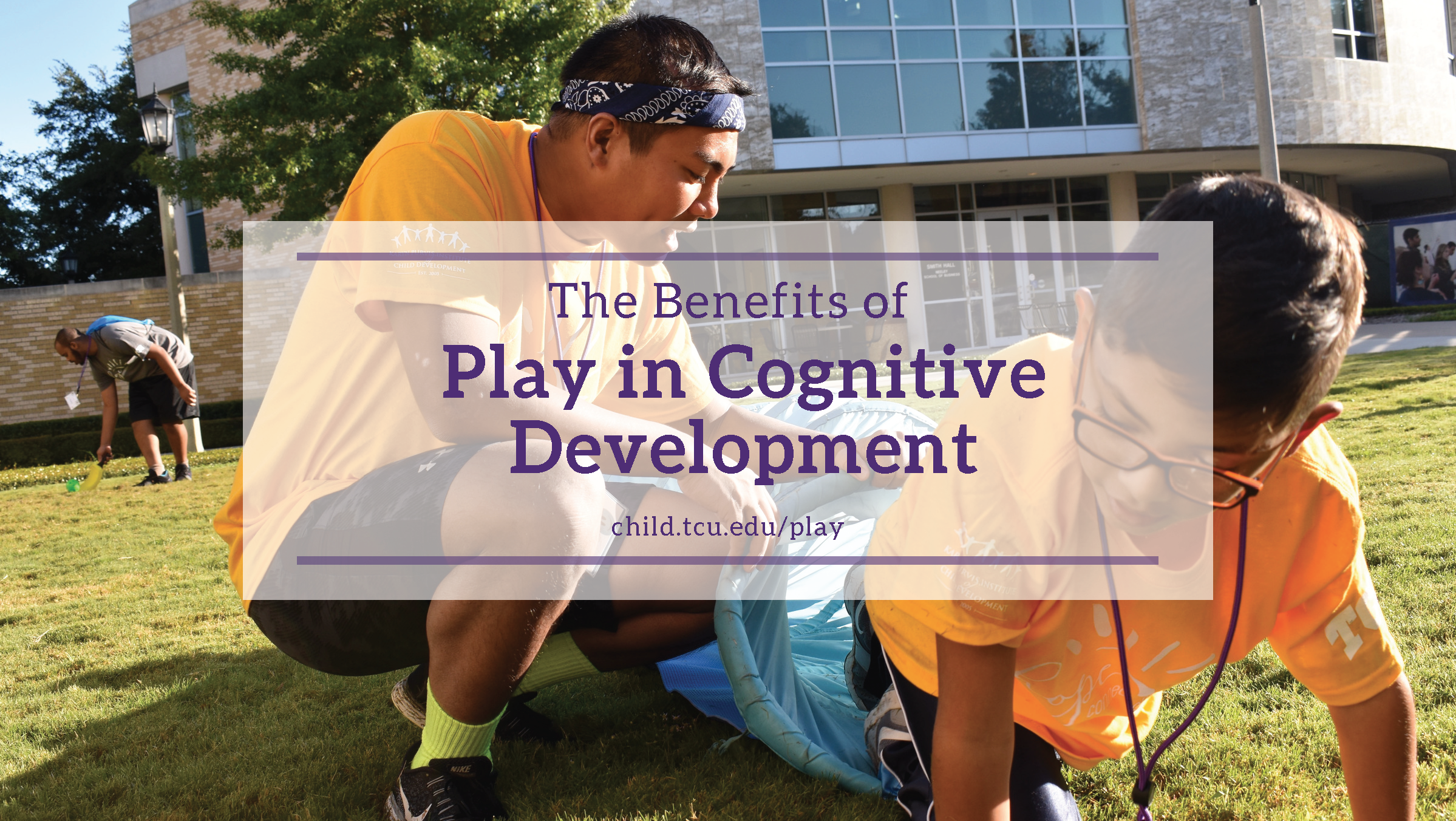
Editor’s note: While it may seem like a simple idea, play is fundamental to forming trust-based relationships. Play permeates the TBRI empowering, connecting, and correcting principles and as Dr. Purvis once said: “Play disarms fear, builds connectedness, and teaches social skills and competencies for life.” We’ve recently received a few questions about the benefits of play in cognitive development, so we’ve provided this summary of current research on the positive impact of play.
The Benefits of Play
By Sheri Parris & Christian Hernandez
Play provides a wide variety of benefits for children. Through play, children build and strengthen socio-emotional and cognitive skills. Children at play have agency (control over their own actions) and feel socially and emotionally safe. They express themselves freely, trying out different behaviors or ideas, without fear or anxiety. Peter Gray (2017) defines play as an activity that (1) is self-chosen and self-directed, (2) is motivated more by means than ends, (3) is guided by mental rules, and (4) includes a strong element of imagination.
Gray also notes that children practice different skills during different types of play. Categories of play include (a) physical/locomotor play (e.g., running, climbing, chasing); (b) constructive play (e.g., building things, creating art or music); (c) language play (e.g., infant cooing, puns, rhymes); (d) fantasy or pretend play (e.g., constructing pretend worlds); (e) games with formal rules (e.g., baseball, chess, dominoes); and (f) social play (e.g., any type of play involving 2 or more children).
Play has shown to have many benefits for the brain because it not only engages children in activities that promote cognitive development (e.g., problem-solving, collaboration, mental flexibility, creativity) but it also removes barriers to cognitive development (e.g., fear, anxiety, stress). Likewise, play promotes development of a wide range of socio-emotional skills, such as self-regulation, listening, negotiating, independent thinking, taking other perspectives, persistence, and curiosity.
Lev Vygotsky was a soviet psychologist whose observations about play continue to be validated psychologists over a century later. He found that social make-believe play was the ideal context for cognitive development. For instance, when children create imaginary situations, they increase their ability to follow internal ideas and social rules rather than impulses, and can practice activities they are too young to perform in real life. In these imaginary roles, children can be a parent rocking a doll and telling it a bedtime story, or a firefighter putting out a fire. Also during make-believe play, children engage in ‘private speech’ where they practice using their thoughts to control their actions. During make-believe play, children can try a wide variety of new and challenging activities, acquiring many new competencies. Recent studies have supported Vygotsky’s observations, including one study by Elias and Berk (2002) showing that joint make-believe play with peers improves self-regulation in highly impulsive preschoolers.
When all factors are considered, few, if any, activities are better for children’s overall development than play. Conversely, lack of play in childhood can lead to abnormal social, emotional, and cognitive development. Play generates from within, and cannot be imposed on children. While there is no match for the benefits of free play, there are also benefits to other types of play such as games with rules, as listed above. However, even when engaged in other types of play, children should participate happily of their own accord. Attention should be focused on the activity itself, and not on the end result. Play is not to be judged, critiqued, or graded. Play is to be encouraged, nurtured, and celebrated.
Reference material
Elias, C.L., & Berk, L.E. (2002). Self-regulation in young children: Is there a role for sociodramatic play? Early Childhood Research Quarterly, 17(2), 216-238. Retrieved from: https://www.sciencedirect.com/science/article/pii/S0885200602001461?via%3Dihub
Gray, P. (2017). What exactly is play, and why is it such a powerful vehicle for learning? Topics in Language Disorders, 37(3), 217-228. Retrieved from: https://oce.ovid.com/article/00011363-201707000-00003/HTML
Wenner, M. (2009). The serious need for play. Scientific American Mind, 20(1), 22-29. Retrieved from: https://www.jstor.org/stable/pdf/24940063.pdf
Yogman, M., et al. (2018). The power of play: A pediatric role in enhancing development in young children. Pediatrics, 142(3), e201. Retrieved from: https://pediatrics.aappublications.org/content/142/3/e20182058.long
 Dr. Sheri Parris is a Research Scientist with the Karyn Purvis Institute of Child Development at TCU. She has conducted and participated in many TBRI research projects including co-authoring journal articles and other written materials designed to disseminate this research. Sheri is also a TBRI Practitioner and is certified to score the Adult Attachment Interview.
Dr. Sheri Parris is a Research Scientist with the Karyn Purvis Institute of Child Development at TCU. She has conducted and participated in many TBRI research projects including co-authoring journal articles and other written materials designed to disseminate this research. Sheri is also a TBRI Practitioner and is certified to score the Adult Attachment Interview.
Christian Hernandez is an undergraduate student in the Department of Psychology at TCU and is a research assistant with KPICD. Christian assists with TBRI Research Projects and is planning to pursue a Master’s degree in Psychology.
We have developed a fun and play based learning program involving gross motor and developmental movements that can be incorporated into the school day… half an hour a day every day, simple to set up for early learning kindy and all through the primary school, it covers the upper and lower case alphabet, numbers, spacial and rhythm.
Happy learning stays… stressful learning learnig does not, cortisol is a switch off.
we so need to be aware of our kids neurological level and for them to succeed at that level, then proceed from their ability, so giving self belief and confidence….failure is confidence and soul destroying.
Hi, can you please suggest some playway methods to teach children with learning disabilities. If you can suggest some websites or books will be highly appreciated. Thank you
I am curious if this research on play for neuro development has been applied to adults for developing new neurological pathways. If it has, do you have research that can be referenced?
Readers might be interested in a very different take on how we humans came to play: “The Phylogeny of Play” at https://www.erasmatazz.com/library/science/the-phylogeny-of-play.html.